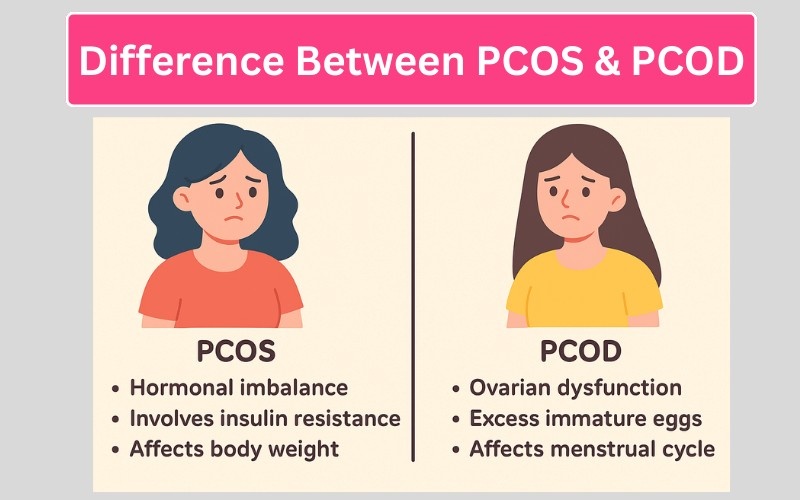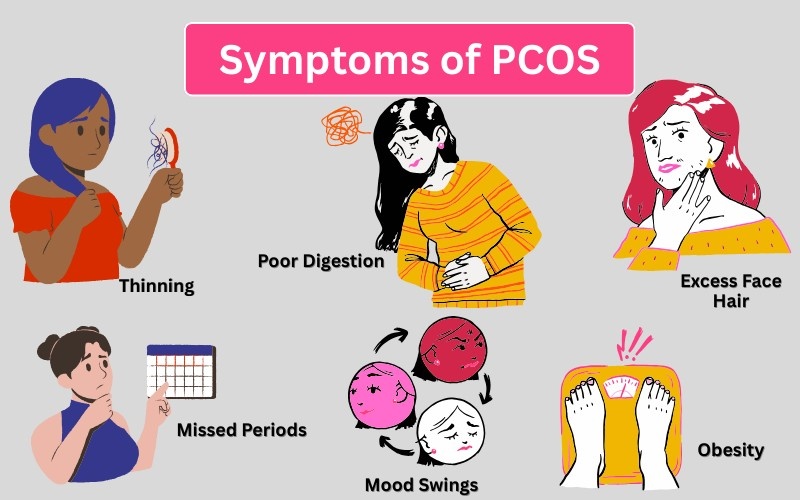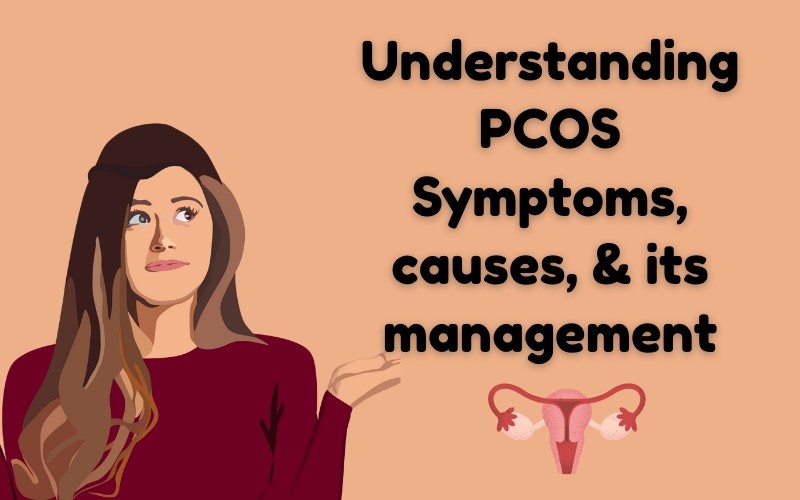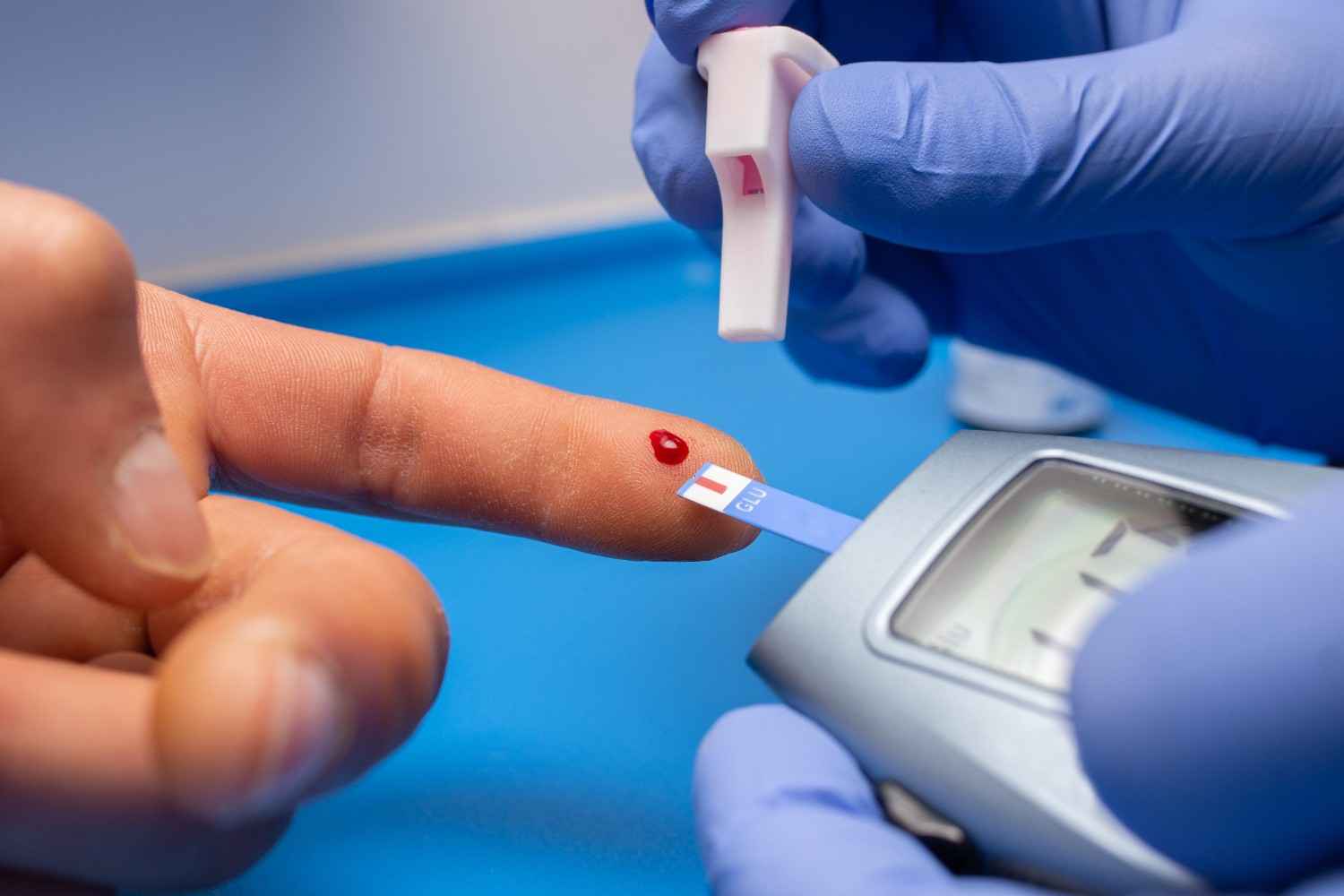You’ve probably heard someone talk about PCOS, maybe a cousin, a friend, or even your doctor. Increasingly, more and more people are struggling with this issue.
So, what’s going on?
Let’s break it down and understand what it is, PCOS symptoms, the difference between PCOS and PCOD, and how our present lifestyle may be fueling this hormonal storm silently. And lastly, PCOS management tips.
PCOS is on The Rise: What Do The Numbers Say?
Back in time, PCOS was hardly part of everyday conversations. But today, the stats are scary:
- Based on the 2012 NIH report, PCOS will affect about 5 million females in the US in the coming years. (Source)
- The global studies say that out of 100 women, 5 to 15 may have PCOS globally.
- The incidence of PCOS is rising rapidly, mostly among asians. (Source)
- Out of every 100 women, about 11 have PCOS in India. (PubMed research) That is, 10% of women in India have PCOS. This study was published in 2022.
- In a very recent study published in 2025, the rate of PCOS has increased to 17.4% in India.
So, is it just people being aware and getting better diagnoses? Or is it something related to a changing lifestyle? Let’s find out and understand PCOS thoroughly!
What is PCOS?
PCOS stands for Polycystic Ovary Syndrome. It is a hormonal problem where your ovaries start behaving a little offbeat.
Meaning, in a healthy body, the ovaries release one egg every month. But in PCOS, this process is disturbed. Small, liquid-filled bubbles develop in the ovaries (called follicles), and eggs are not released regularly. This leads to irregular or no periods and hormonal imbalances.
PCOS affects the endocrine system. This system produces and releases hormones in the body. These hormones regulate growth, metabolism, reproduction, and mood. Now you can see how problems in the endocrine system can significantly disrupt our normal and essential bodily functions.
PCOS and Type 2 Diabetes: How Are They Related?
PCOS and type 2 diabetes are closely linked because insulin resistance is common in PCOS, which makes it harder for the body to control blood sugar.
This common problem of insulin resistance in PCOS patients, over time, increases the risk of type 2 diabetes. Irregular periods, weight gain, acne, and unwanted hair growth may seem hormonal, but a hidden blood sugar imbalance often plays a major role in both conditions in today’s lifestyle.
The Difference Between PCOS and PCOD

People often use PCOS and PCOD interchangeably, but they are different.
- PCOD (Polycystic Ovarian Disease): This is a condition where the ovaries release immature or partially mature eggs. It is a milder condition than PCOS with symptoms like heavy or light bleeding during menstruation, weight gain, and hair loss. It happens because of a deficiency of reproductive hormones like FSH (Follicle-stimulating hormone) and LH (luteinizing hormone).
- PCOS (Polycystic Ovary Syndrome): This is a more serious problem that involves long-term complications like hormonal imbalances and even insulin resistance. PCOS Symptoms change from person to person. Let’s check them below.
In both cases, lifestyle changes for good health and early diagnosis play a huge role in management.
PCOS Symptoms: How Does it Show Up?

PCOS shows up with varying symptoms in different individuals. Hormonal imbalance is the most common. High levels of the male hormone androgen can lead to irregular periods, acne, facial hair, and hair loss. Other PCOS symptoms include:
- Irregular or missed periods
- Weight gain (obesity) or difficulty losing weight
- Hirsutism, meaning abnormal hair growth on the face and body
- Poor digestion
- Low energy
- Acne and oily skin
- Hair thinning or hair loss
- The most ignorant, mood swings
- Difficulty getting pregnant
- Dark patches on the neck and underarms
Not everyone has the same PCOS symptoms. Most women have irregular periods or trouble conceiving.
Why is PCOS Rising so Rapidly?
The rise of PCOS is not a shock if you look at lifestyle changes due to technology.
- The desk job, which most people have, has given rise to a sedentary lifestyle. Sitting for more than 7 hours at one place without movement leads to obesity, stress, and other metabolic problems.
- Other than this, a processed food diet (sugary drinks, carbs, irregular eating habits), stress, and a ruined sleep cycle lead to hormonal imbalance.
- Research shows that lack of movement, physical activity, and exercise leads to stress and depression, which in turn may indirectly affect health-related quality of life. And this poor quality of life gives rise to problems like PCOS.
- In addition to that, skincare, plastic, nylon clothes, and even certain food packaging can act as endocrine disrupters. They slowly affect our hormonal health.
PCOS Management Tips (That Actually Help)
Enough talking about the problem. Now, let’s talk about the solution. Of course, medication is very important, as without it, the PCOS symptoms become impossible to manage. But along with that, a healthy lifestyle also supports a lot. Here’s the list of management tips you need to manage the PCOS symptoms:
Reduce Sedentary Habits
A study that had 283 participants (women with PCOS) has found that women with PCOS who sit for more than 7 hours a day tend to have a lower quality of life. A small walk in between work and a healthy diet is a good start in controlling PCOS symptoms. Because, factually, lifestyle change to an active one can help you manage PCOS symptoms effectively.
Do Regular Physical Activity
Engage in intense regular exercise and Yoga. This helps manage PCOS symptoms like infertility, obesity, stress, and diabetes. For the initial times, start with small exercise goals with strategies to reduce sitting for a long time. Swap an hour of brisk walking, a couple of stretching exercises, Yoga, using stairs instead of the elevator, etc.
Diet For PCOS You Must Follow
Making diet improvements like avoiding Junk, oily food, sugary drinks, and eating a balanced diet are very important for PCOS management. In case you’re trying to conceive and have PCOS, regular exercise and proper diet can make all the difference.
PCOS complications are diabetes, heart disease, obesity, and other illnesses. That is why controlling weight is of prime importance in PCOS management. Clinical dieticians say that PCOS patients can improve their health by starting with nutritious foods.
So, what is the best diet for PCOS? Before talking about what to eat, take a look at the list of foods to avoid in PCOS:
- Fried foods (French fries, potato chips, fried chicken or fish, etc.)
- Saturated fats such as butter
- Red meat, steaks, hot dogs, etc.
- Cereals high in sugar, like granola and instant oatmeal
- Sugary beverages like soda, sports drinks, and teas
- Alcohol
- Refined flour, white bread.
- White rice
Balanced Diet for PCOS includes:
- Super foods like chia seeds, flax seeds, and walnuts are a good source of healthy fats and omega-3 fats.
- Use olive oil instead of sunflower, groundnut oils, and butter.
- Several herbs like jeera powder, black seed oil, fennel seeds, green tea, fenugreek seeds, cinnamon powder, primrose oil, and turmeric are highly regarded for lowering PCOS symptoms and its complications like obesity and diabetes. (Research)
- Eat non-starchy vegetables, which are leafy greens—spinach, kale, lettuce. Other veggies like tomatoes, peppers, broccoli, cauliflower, etc.
- Include whole grains in your diet, like brown rice, quinoa, barley, and others. Breads and pastas made with whole grains can help in avoiding a sudden sugar spike.
Final Thoughts: You’re Not Alone, & You’re Not to Blame
PCOS can feel confusing and frustrating, but you’re not alone. The condition is increasingly becoming common, but with the right knowledge, support, and self-care, PCOS symptom management is possible.
On the borderline, excess body weight & stress can be the cause of the onset of PCOS and can lead to complications of PCOS like heart problems and diabetes. So, basically, you have to manage your weight and stress. For that, regular Yoga practice, a balanced diet, and herbal treatments can make a huge difference.
You don’t have to stress over starting everything at once. Just start with one small change. Make a chart. Make good choices. Everything adds up! Stay healthy, laugh more often, and stress less. Because why not?
Have Questions or Your Own PCOS Journey to Share?
Drop your thoughts or queries in the comments. Let’s talk, learn, and support each other.



2 comments